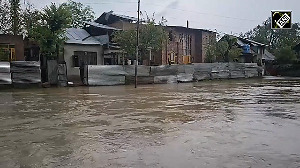We all know that in a matter of years, if not months, there will be a myriad ways of accessing (and delivering) voice, video and data. However, will this change what we watch, listen or read specially in terms of media and entertainment? The answer is yes!
We are already seeing a change. The more affluent societies are spending more time and money on the Internet. What started off as a maverick and largely illegal activity, file sharing or peer-to-peer computing has given birth to one of the fastest growing segments of digital world - music downloads.
I-Pod and many other mobile devices are refining how we buy music. Niche broadcasting and Podcasting will allow customisation of music. A lot of music is being composed and recorded through computer programming and easy-to-use electronic samplers. In the years to come, this trend will only accentuate.
It is almost certain that, in a few years, conventional linear TV will give way to on-demand service. There may be different platforms like digital cable, DTH, IPTV, mobile TV and Digital Terrestrial TV - each offering a differentiated version of customisation.
Personal/Network video recorders like TiVo and place shifters like Slingbox will become standard. In 10 years, analogue TV would disappear and almost all broadcast will be in High-defintion mode.
There will be much more interactivity as broadband penetration increases. Going forward there will be multiple variants of programming. Like mobisodes, one will also see fresh programming created for different screen sizes and viewing.
Out-of-Home viewing will become a major segment and drive its own content. Nevertheless, the real killer will be Immersive TV about which I will talk about in a later column.
Now, digital cinema is all embracive term. For over two decades, cinema is being continuously reshaped by digital technology. From special effects to animation, digital intermediates to digital projection virtually all films have some digital influence today.
For example, all movie soundtracks are now recorded digitally. Celluloid will slowly over the next two decades completely give way to digitisation.
From hi-end 4k projectors offering unnerving realism to the low cost 'e Cinemas', digital delivery through cable or satellite will become common.
While cinegoers will have the option to visit the neighbourhood multiplex for a larger-than-life shared movie experience, one will also be able to have a better home viewing experience.
Better compression technology and the next generations converged networks and inexpensive digital cameras will make it easier to make films and distribute it.
Blogging,Vlogging (video blogging) and personal multimedia services are some of the areas which will redefine media and entertainment in the next decade.
The challenge is to be able to harness the rich tradition of existing media with technology and engage audiences of the new age. The next round of applause will be virtual!
Amit Khanna is chairman of Reliance Entertainment and the views expressed are his own








 © 2025
© 2025